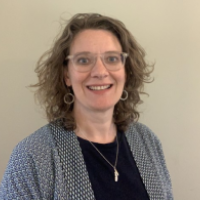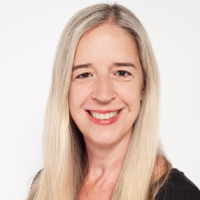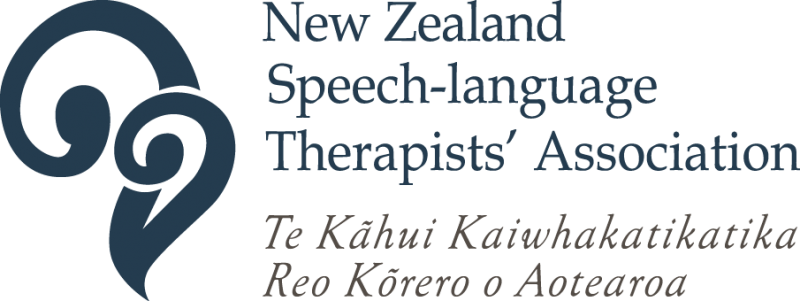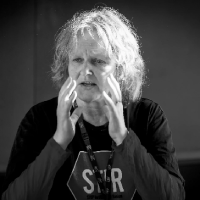Grace Gane Memorial Lecture

Grace Gane Memorial Lecture 2025: Associate Professor Felicity Bright
Communication Matters
The Grace Gane Memorial Lecture recognises outstanding contributions to speech-language therapy. Instituted in 2008 to honour Miss Grace Gane, a founder of NZSTA and the first editor of the New Zealand Speech Therapists’ Journal, this prestigious lecture is delivered at the biennial NZSTA conference.
In 2025, the lecture will be presented by Associate Professor Felicity Bright of Auckland University of Technology (AUT). Felicity has a distinguished career in speech-language therapy, focusing on person-centred, culturally responsive stroke rehabilitation. Her research examines how rehabilitation services meet the needs of patients and whānau, advocating for holistic, well-being-centred care.
Felicity’s work challenges the dominant emphasis on physical function in stroke services, highlighting the long-term impacts of neglecting well-being. She collaborates nationally and internationally to enhance stroke care, co-leading research on communication in acute stroke settings and its critical role in patient outcomes.
As a research leader at AUT’s Centre for Person Centred Research, Felicity integrates research with practice, producing strategies that improve care and influence policy. She chairs the Psychosocial Working Group of the National Stroke Network and has developed the Psychosocial Well-being Toolkit to enhance clinical practice.
Felicity is also dedicated to education, leading AUT’s Doctor of Health Science programme, mentoring clinicians, and guiding research that transforms healthcare practice. Her contributions to NZSTA over 20 years include serving on the executive committee, co-convening international conferences, and leading programme accreditation efforts.
Felicity’s work embodies the integration of research, education, and practice, advancing the quality of stroke care and supporting speech-language therapists to deliver impactful, person-centred care.

Keynote Speaker: Mary Woodward
Mary Woodward qualified as a speech and language therapist in England in 2003. She has worked in various clinical practice areas, but her passion has always been mental health and criminal justice. In England, she worked as a speech and language therapist in secure psychiatric hospitals, including helping to set up a secure unit for adults with autism who had been diverted out of the prison system, as well as working as a registered intermediary for the Ministry of Justice in London, facilitating communication between police/courts and vulnerable witnesses.
Having lived on several continents, Mary made Sydney, Australia, home in 2011. Mary spent nearly a decade working as a senior speech pathologist at the Concord Centre of Mental Health at Concord Hospital, Sydney and was responsible for significantly growing the speech pathology team. In a private capacity, Mary provided consultancy and training services for managing communication and swallowing needs within the justice and mental health systems. This included advocacy work, the development of a training package for children’s court registry staff to facilitate more effective communication with the young people who appear in court, and delivering staff training in all the youth detention centres in New South Wales. Mary was also involved in several large prevalence studies and a speech pathology intervention trial with young people in young people in custody in NSW.
Between 2017 and 2025, Mary worked for Speech Pathology Australia, the professional peak body, most recently as the Senior Advisor for Justice. In this role, she led the development of resources and education to prepare the speech pathology workforce to work with people involved in the justice system and continued to be a passionate, tenacious advocate for Australian jurisdictions to meet the needs of people with communication difficulties in the justice system more effectively.
Keynote Speaker: Dr Heather Came MNZM
Dr Heather Came is a seventh generation Pākehā New Zealander (tangata Tiriti) who grew up on Ngātiwai land. She has worked for 30 years in health promotion and/or public health and has a long involvement in social justice activism. Heather is a founding member and co-chair of STIR: Stop Institutional Racism, and affiliated to Tāmaki Tiriti Workers.
She embraces life as an activist scholar and, in 2023, set up Heather Came & Associates, a consultancy specialising in pursuing racial justice. She has prepared expert evidence for the WAI 2575 health kaupapa Waitangi Tribunal claims and has led shadow reports to United Nations human rights committees around institutional racism. She is co-convenor of Te Tiriti based futures + Antiracism, a series of open-access virtual conferences.
As a scholar, she has published over 60 peer-reviewed journal articles and has an H-index of 22, with 1590 citations. She has published in journals such as Social Science and Medicine, Ethnicity and Health, and Critical Public Health. She is a regular contributor to the NZ Medical Journal. She is currently a co-principal investigator on a prestigious Marsden grant focused on re-imaging anti-racism theory for the health sector. Her research focuses on critical policy analysis, Te Tiriti o Waitangi, anti-racism, and institutional racism.
Heather is an experienced Te Tiriti and antiracism trainer. She previously worked at Auckland University of Technology for eleven years, during which time she won a Vice Chancellor’s Teaching Excellence Award. In 2021, she was the joint winner of Kāhui Hauora Tūmatanui Public Health Champion Award for her lifetime contribution to public health.
In 2022, Heather was made a Member of the New Zealand Order of Merit for her services to Māori, education and health.

Keynote Speaker: Dr Mershen Pillay
Dr Mershen Pillay is a Programme Leader in Speech and Language Therapy at Massey University, bringing over three decades of global experience in clinical practice, research, and education. His professional work has been profoundly shaped by South Africa's Truth and Reconciliation process, informing his approach to equity and social justice.

